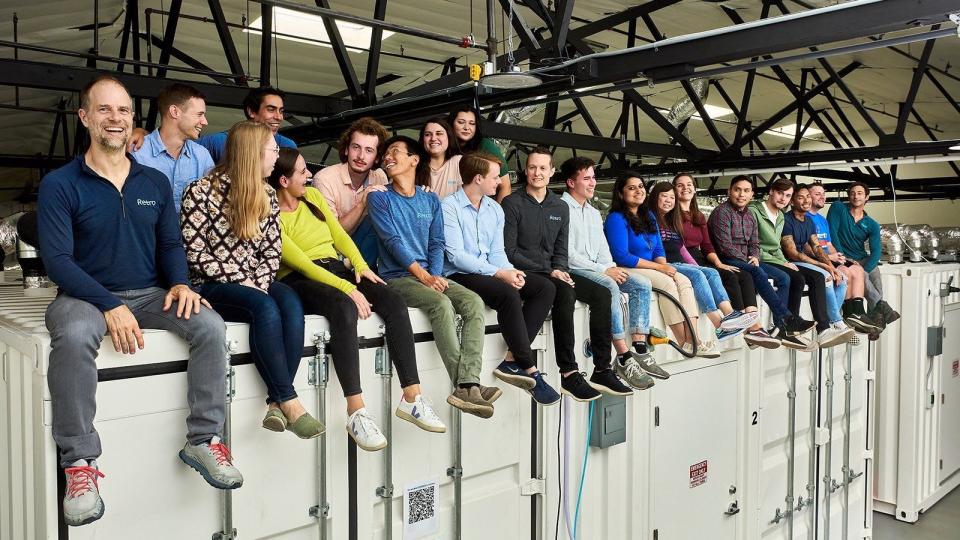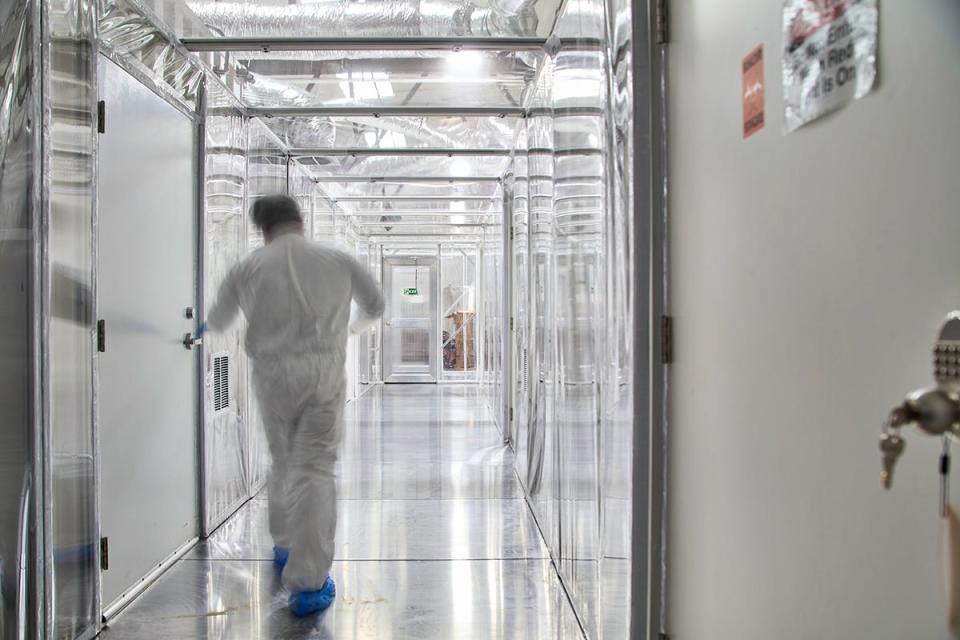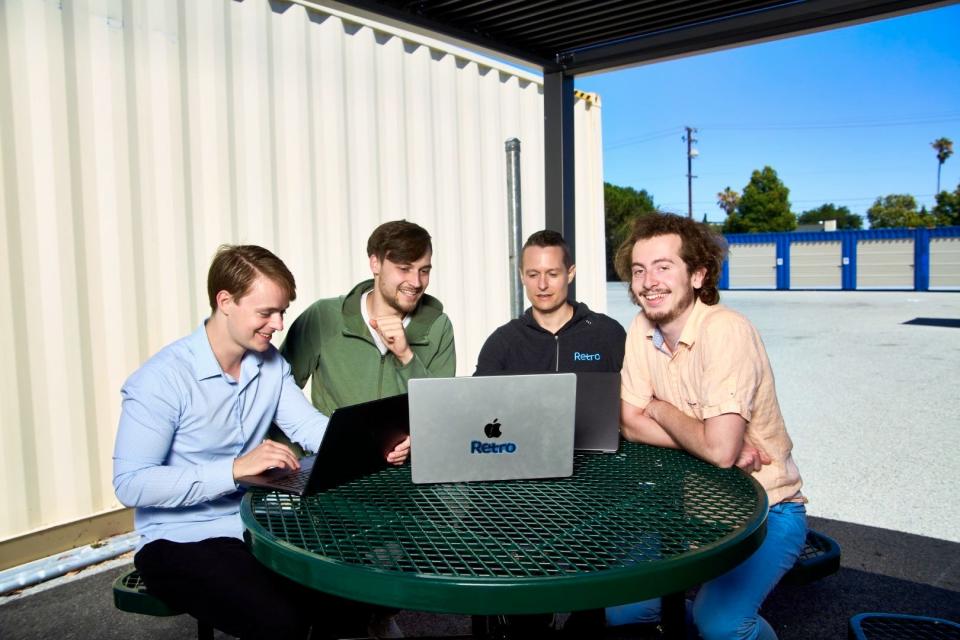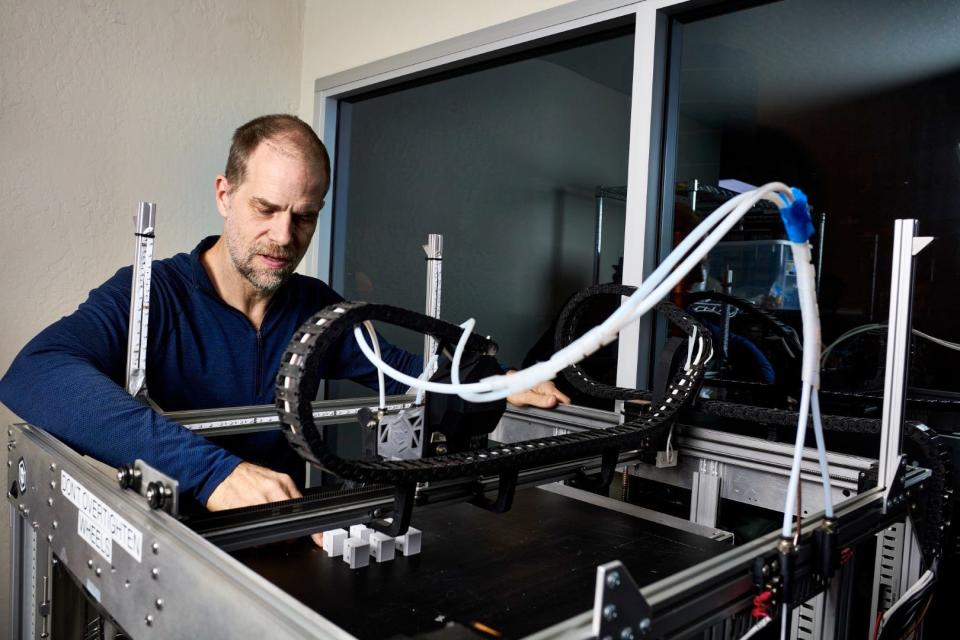Sam Altman's mission to increase human lifespan with a $180 million shipping container experiment at Retro Biosciences
Sam Altman is already a tech titan. Somehow, at 38, he's been coding for three decades, and with the advent of ChatGPT and (more recently) Sora, he's quickly amassed nearly as much hype and influence as Elon Musk and Mark Zuckerberg.
As OpenAI's CEO, Altman is widely considered to be the face of artificial intelligence, reprogramming the way we'll live and work for years to come. His relentless push into the future of tech — including early investments in Reddit, Stripe, Airbnb, and Instacart — has made him a billionaire at least a couple of times over.
But computers aren't his only passion. Over the past three years, Altman has been quietly spending a considerable amount of time and money on a more biological kind of moonshot: trying to reprogram the human body.
In 2021, during a relative "lull" between becoming the CEO of OpenAI and unveiling ChatGPT to the world, Altman started a $180 million side project. Called Retro Biosciences, the startup's goal is simple yet supremely ambitious: Add 10 healthy, enjoyable years onto the back end of our lifetimes.
To pull this off, Altman teamed up with Joe Betts-LaCroix, a Harvard, MIT, and Caltech-trained scientist, biophysicist, and computer whiz who once developed the world's smallest personal computer. While he isn't trained in geroscience, Betts-LaCroix has been a longtime promoter of more hard science and "deep biology" for longevity through his nonprofit Health Extension Foundation.
To the casual observer, biohacking might seem like Altman's quirky pet project, a distraction from his day-to-day steeped in the business of all things tech. But Retro Biosciences actually fits quite neatly into Altman's futuristic worldview.
As a doomsday prepper who says he has a stash of guns, gold, and land tucked aside for a just-in-case scenario, it makes sense that Altman is concerned with the future of society, and focused on identifying threats to our existence. He also feels strongly that he is someone who can help solve all of these existential problems, future-proofing our world.
Is this just what happens when you become rich and powerful in Silicon Valley, you become convinced you can fix everything? Or is it Altman's rugged, take-charge and fend-for-yourself ethos as a prepper that drives him to tackle both the future of fusion energy and human longevity, in addition to all the chips and AI stuff?
Whatever it is that drives him, shockingly, this slightly longer-lived timeframe he imagines for our bodies is actually plausible.
Betting big on 3 trendy anti-aging techniques

Retro Biosciences sits about 30 miles south of OpenAI's San Francisco headquarters, where ChatGPT was hatched. In true Silicon Valley startup fashion, it's closer to the campuses of Meta, Apple, and Stanford University than the Golden City.
The company ethos is pure Silicon Valley: "More pirate than navy." HQ is a warehouse-like office, filled with bold, bright murals of plants and glass beakers. The labs are a set of shipping containers that they built and ventilated themselves. Desks sit perched on a platform just high enough to let employees peek through narrow, barred windows. The whole aesthetic is "move fast and break things," but for longevity.

Since the shipping container experiments started in July 2021, Retro's divided its ambitions into three buckets. Essentially, much like the startup incubator Y Combinator (which Altman used to run), Retro's placing separate bets on what might work to extend human lifespan.
While munching on some nuts at his desk, Betts-LaCroix told Business Insider the Retro model is "breaking all the rules of early-stage biotech, in which you're supposed to focus on one specific platform or one specific target, and pour everything into that." Here's where they're placing their bets:
Autophagy
The built-in recycling process that keeps our cells healthy and spry is probably the ripest research area of the three for a potential "quick" fix for aging, since (in theory) it could be tweaked with a pill. Right now, the closest we have to a pill to improve cellular efficiency is either rapamycin or metformin. These two existing medications (for kidney transplants and diabetes, respectively) show promise for boosting longevity, and some biohackers are using them off-label as DIY aging interventions already. But as of yet, there's no drug that directly, definitively, and officially targets this cellular housekeeping issue.
Cellular reprogramming
One of the trendiest ideas floating around in longevity science today. This one is also logistically tricky. The idea is to make old cells act young again by "reprogramming" them into a slightly younger state using four well-known Yamanaka Factors (Japanese stem cell researcher Shinya Yamanaka won a Nobel Prize in 2012 for discovering this can be done.) But experimentally, it's been hard to accomplish this kind of remodeling in a way that doesn't potentially cause cancer or other health issues.
Here, Betts-LaCroix imagines starting very slowly — extracting cells from people's ears or knee joints, partially reprogramming them to de-age them just a bit, then inserting them back in to people once they've been deemed safe for treatment.
"Don't even go straight into the person to start with," he said. "Take cells out of their body to program, make sure you're hunky-dory."
If those experiments help with issues like age-related hearing loss or joint mobility, for example, Retro could then try something more advanced.
Plasma therapy
The concept that sounds the most Dracula-esque of all. Betts-LaCroix points to "promising rejuvenation" research that's been done in mice by diluting their blood plasma with saline. (This appears to work better than just giving old mice young blood.)
In aging mice that have undergone plasma dilution, a wide array of age-related issues improve. The procedure reduces inflammation, improves muscle and liver health, and boosts the formation of brain cells. Nascent research in people, including some underway at Retro, suggests the technique might work for us non-rodents too.
Altman is very hands-on at Retro.bio, CEO says

It's a gargantuan mission. And one that Altman believes in so strongly that he works on it literally all the time.
Betts-LaCroix says he meets with Altman once a week, going over successes and failures in Retro lab experiments and chatting strategy. Somehow, amidst all the chip manufacturing plans, and unveiling of new AI tools like Sora, Altman consistently fits this meeting in.
"The board is me and Sam Altman, and he is a very rational and technically capable person," Betts-LaCroix told BI.
"We don't have to wait for three months to go by for our quarterly board meeting and build up a big slide deck and get everybody all nervous and sweaty about 'should we actually show this data?' I show everything, all the warts."
Altman is in a longevity race against Bezos, Thiel, and other billionaires
These days it appears as if it's almost obligatory for tech titans like Altman to invest in life extension, in some way or another.
Amazon's Jeff Bezos is widely believed to have poured hundreds of millions into the extremely secretive San Diego-based Altos Labs, which has plucked some of the most impressive and decorated longevity scientists out of universities around the world. With $3 billion fully committed from Bezos, Yuri Milner, and others, Altos may be the best-funded longevity lab around.
Billionaire Peter Thiel has famously agreed to have his body cryogenically frozen when he dies, so he can be brought back to life later. He's also donated cash to Aubrey de Grey, who touts the idea that we might be able to "escape" the velocity of death someday soon.
Then there's German Billionaire Christian Angermayer, the chairman of Cambrian Bio, focused on developing a wide range of pills and treatments for improving aging, at various startups — including one that's aimed at keeping women's ovaries younger, prolonging their fertility window.

Betts-LaCroix sees what Retro is doing as a moral calling more so than a savvy business model for increasing a billionaire's net worth.
"It's an obvious public good to create more health," he said.
But not all experts agree. Some question whether tacking an extra 10 years of life onto the bodies of the richest, most privileged among us should really take precedence over finding ways that we might all live a little longer, by reducing health disparities, and implementing more systemic changes that would improve the social, mental, and emotional health of all of us. There are things we already know work super well to improve human longevity, like exercise, diet, faith, and social support. (Presumably, the billionaire class is already adhering to these well-known pillars of health, which can extend healthy human lifespan by about 10 years.)
"If the geroscientists are successful at making people live five or ten years longer by taking a pill, the effects on the business world, on the insurance industry, on the healthcare industry, on social security will be a tsunami," biogerontologist Daniel Promislow, who directs the Dog Aging Project, previously told BI.
Will Altman's approach, which worked so well for discovering several blockbuster Silicon Valley startups, win him the big race to a longevity-boosting product for people's bodies? It is possible that Retro will get there first, and unlock a huge windfall of hundreds of billions of dollars. But nobody really knows who's leading the pack just yet. It's still way too early to pick winners and losers in this industry.
Matt Buckley, one of Retro's co-founders, recently told Bloomberg that the company probably has until about 2030 to run with Altman's cash. Then they'll need to consider going public, or finding some more investors. By then, Betts-LaCroix says maybe, just maybe, they'll have some first breakthroughs in hand, similar to what's happened recently with OpenAI and ChatGPT.
"Back in 2000, I was like, 'man, I hope I get to live through the time that AI starts to sweep across society,'" Betts-LaCroix said.
That time has come.
"And yay! I'm alive," he said.
Read the original article on Business Insider

